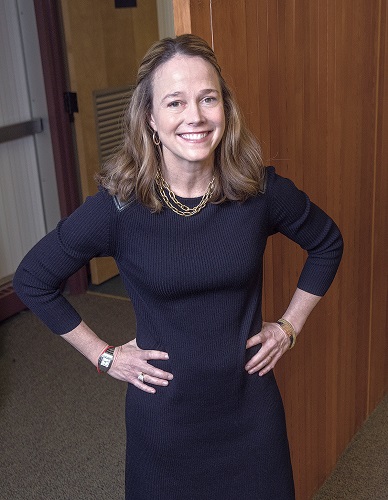Meghan L. Hughes, president of the Community College of Rhode Island, was recently elected to serve on the Federal Reserve Bank of Boston’s board of directors. Hughes also serves as chairperson of the Greater Providence Chamber of Commerce board of directors and has more than 30 years of experience in higher education and nonprofit work. She spoke with PBN about her new role with the Boston Fed.
PBN: How did this come about? Did they reach out to you, or you to them?
HUGHES: I was approached about it last year. I can’t really speak more to the review process though, that’s better explained by the Federal Reserve.
PBN: What do you think is the significance of this role for you?
HUGHES: I think we all understand the importance of the Federal Reserve board and its impact on monetary policy and the community. To me, this is a really important opportunity to make sure that Rhode Island and our economy, our business environment, our employers are at the table for those conversations, so the Fed has a clear eye for those experiences when making policies.
PBN: Another Rhode Island higher education leader, Christina H. Paxson, president of Brown University, previously served on the Boston Fed board and as its chairperson. Do you see yourself filling a similar role in terms of representing Rhode Island higher education?
Hughes: Although I admire Chris a lot, we lead quite different institutions, so we bring quite a different lens to higher education. Certainly, we share the belief that it is essential.
What we share is less because of our space within higher education and more because we are both quite engaged with the Rhode Island business community.
PBN: What do you see as the most important economic or business conditions in Rhode Island to bring to the Boston Fed’s attention?
HUGHES: I am going to take the early months as a new member to really develop an understanding of what issues the Fed is looking for us, as directors, to bring forward. I know the Fed is really focused on setting monetary policy that’s going to create a vibrant, inclusive economy that works for all, which means looking at employment. What I see regionally, which I think are overlapping issues that everything is paying attention to, are things like the consumer price index and the labor market.
PBN: Some might say the Federal Reserve’s role is more important than ever, given inflationary pressures and the potential for a recession. Does that affect your interest in serving on this board?
HUGHES: I certainly agree that this is an important moment for the country. But my presumption is that my predecessors on the board also felt like there were important events happening during their tenure.
Nancy Lavin is a PBN staff writer. You may reach her at Lavin@PBN.com.












